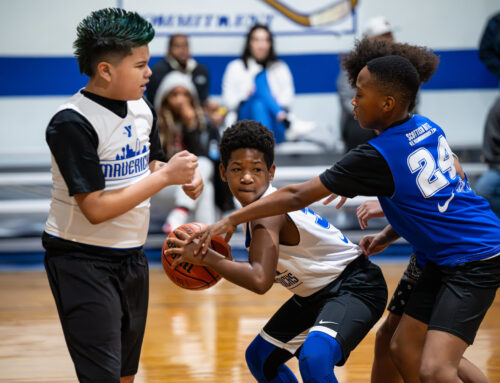One disadvantage of a monthly column is trying to anticipate what might have happened between your deadline and the publication date. So, here goes: How about those Dallas Stars, Stanley Cup winners in six thrilling games! (And if I’m wrong – well, see the lead sentence.) As you’ve probably gathered from this month’s interview, avid interest in sports, at all levels, is pretty pervasive in this town. Having a winning, even a champion, sports team can bring together a community across all sorts of lines and foster increased civic pride and cohesion. I grew up in Dallas, and no matter what I think of the Dallas Cowboys’ occasional off-the-field high-jinks, I will always remember fondly that they gave Dallas a nationwide identity for something other than the Kennedy assassination.
A lot of people think that the presence of professional sports teams gives a city a national reputation and a “big league” atmosphere — and makes it more attractive for corporate relocations, as well as producing economic multiplier effects like sales taxes, spin-off businesses like restaurants, development opportunities and others. These were big selling points for our soon-to-be Downtown arena, although the proof remains to be seen.
Of course, people can get too carried away with sports. These hyped-up spectacles, which are still, after all, just games, can distract some people to the exclusion of things that ought to be higher priorities — just as the Roman rulers kept the people pacified by giving them “bread and circuses.” We have all met people who seem to be obsessed with the minutiae of sports and who all too often insist on making “heroes” out of athletes — who are, nonetheless, flawed human beings like the rest of us, only with astounding athletic skills. This by itself, however, doesn’t make you a hero or a role model, something both parents and children would do well to remember.
There is sometimes a darker side to our favorite pastimes, most of which is a reflection of larger ills in our culture. This is often seen in professional sports — substance abuse, materialism, antisocial behavior of various types — but is probably more disturbing when it crops up in our schools and colleges. Although athletics are an essential part of children’s growth and development, too many individuals and communities have their priorities out of whack by glorifying athletic success over academic or artistic achievement (and giving kids the idea they can all make millions in pro sports). This even extends to some suburban school systems that maintain gargantuan high schools so the best athletes won’t be split up among two or more schools, or to college alumni who help corrupt so-called “student athletes” so their alma mater can field a better team. Schools should also guard against the cliquishness and special treatment to which successful athletes can be subject, and parents should be careful not to push their kids too hard to be successful in, or even to care much about, sports.
Lest you think, however, that this casual fan is anti-sports, I have had a tremendous amount of fun and excitement over the years watching and following sports. Our games frequently show us high drama and deep human interest, full of emotional highs and lows and providing us with a competitive outlet. Some of our best writers, including literary icons like Ernest Hemingway, got their start on the sports page, artfully describing the theatrical grace and skill they saw on the field. We humans have always had our games and contests, and while we need to keep them in the right perspective, we probably always will.





